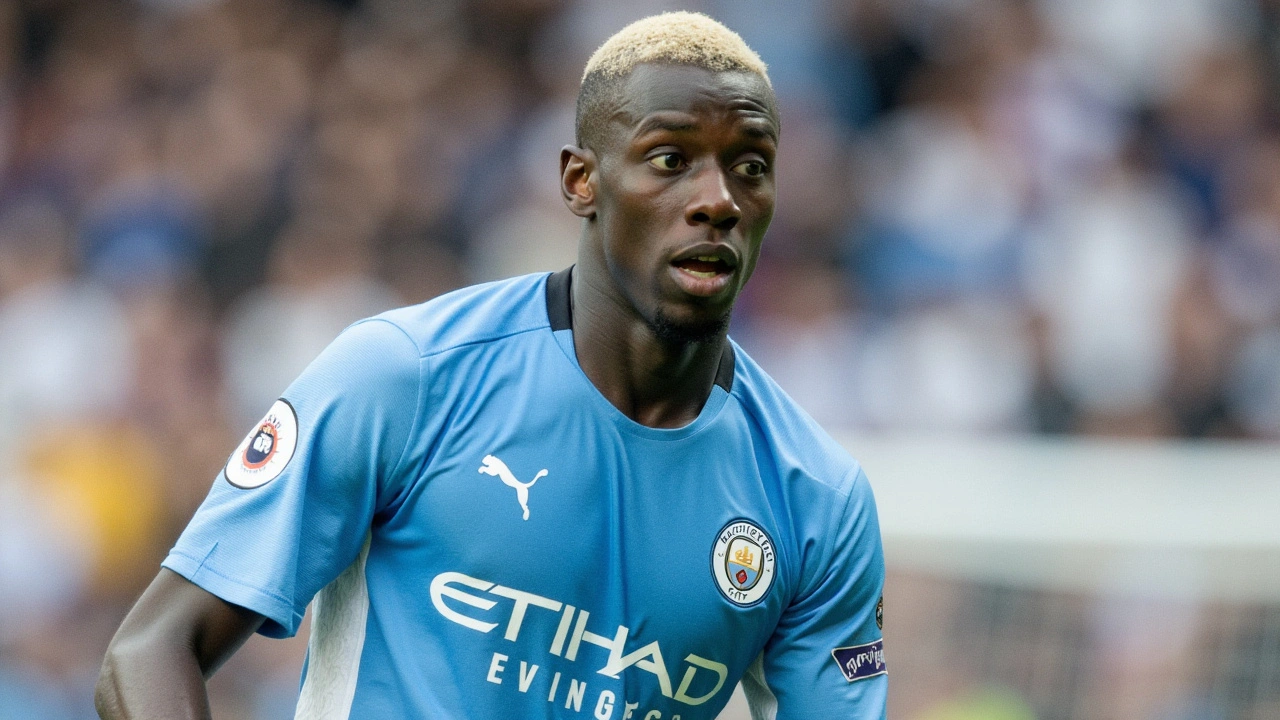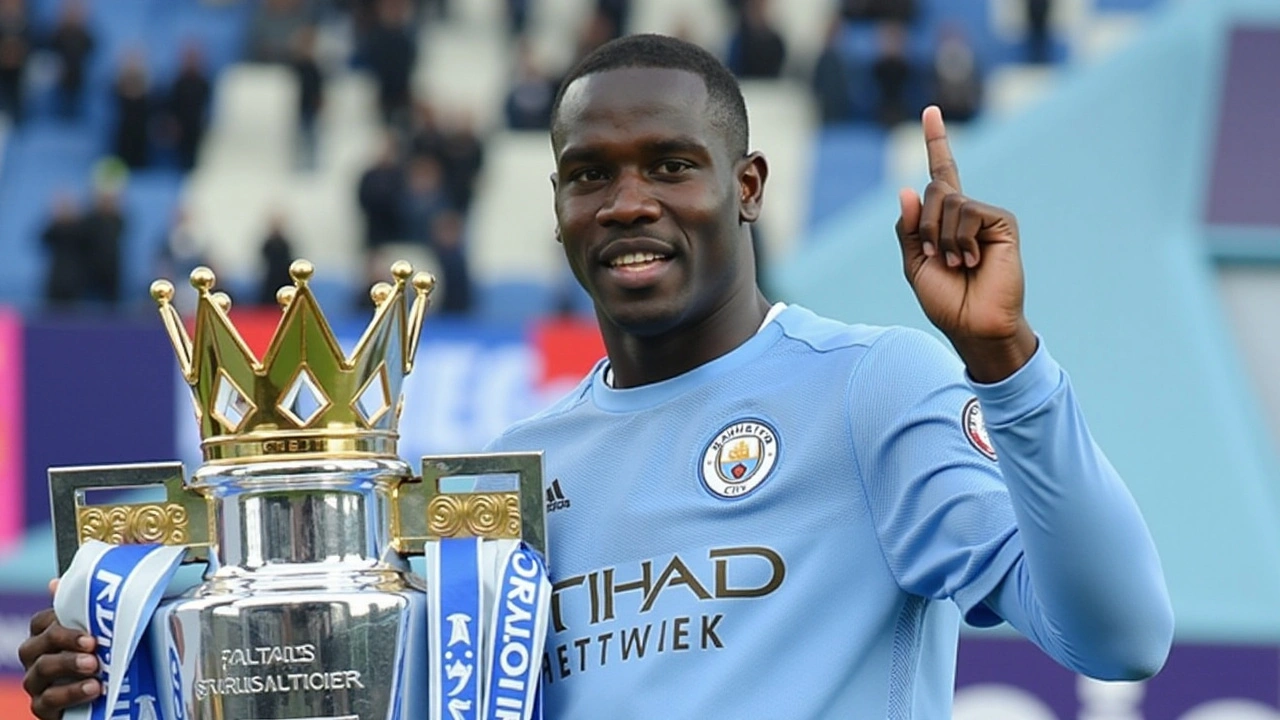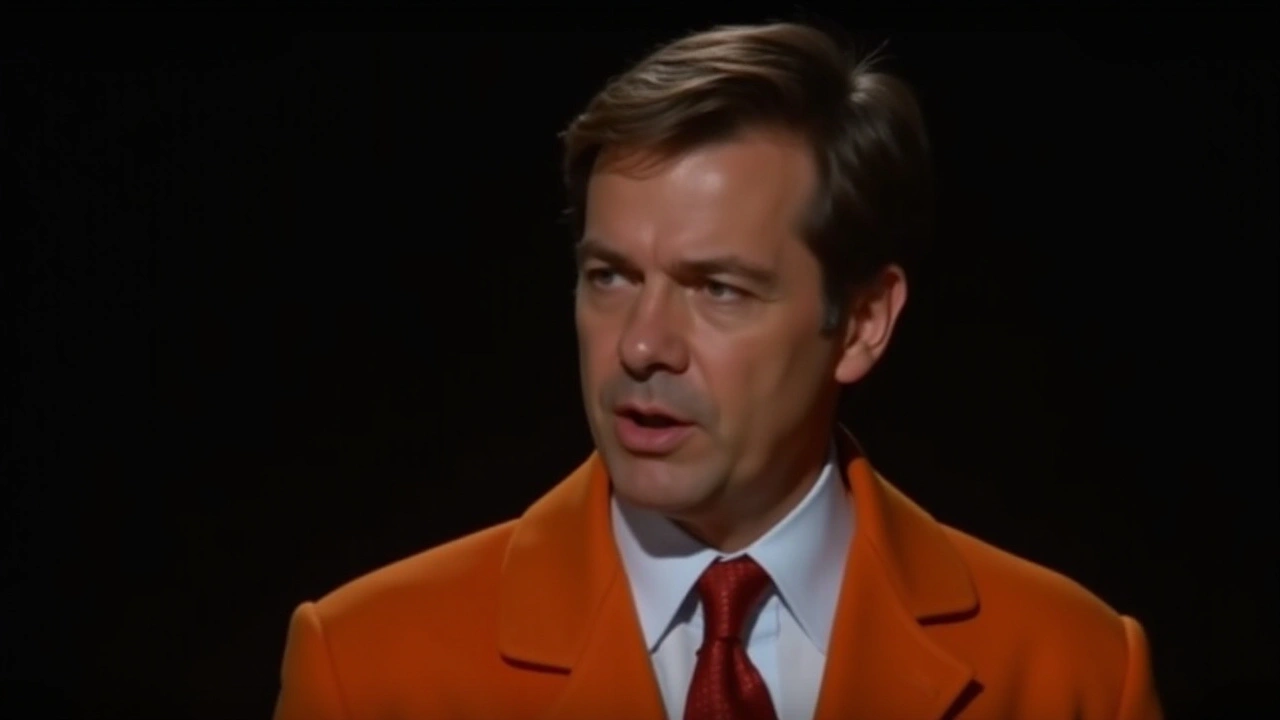Benjamin Mendy's Bold Claims on Manchester City Players' Lockdown Parties

Benjamin Mendy's Allegations and Legal Battle
In a recent unfolding of events that has captured the attention of both the sports world and legal circles, former Manchester City footballer Benjamin Mendy has made explosive allegations regarding the involvement of his teammates in rule-breaking activities during the COVID-19 lockdown period. According to Mendy, 'several' of his Manchester City colleagues, including notable figures within the club, partook in alcohol-fueled parties that occurred during government-mandated lockdowns. These gatherings, says Mendy, involved not just drinking but also casual encounters with women, a direct contravention of the restrictions that were in place at the time.
These claims have resurfaced as Mendy pursues an employment tribunal against his former club, seeking a substantial £11 million in damages for what he describes as unpaid wages. The defender, who was acquitted of rape charges last year, contends that the club unfairly targeted him for disciplinary measures while other players who attended these soirées were left unpunished. It's a bold allegation that questions the purported inconsistencies in the way the football club dealt with breaches of protocol and internal discipline.
Humanizing Events During the Pandemic
The tribunal, aimed at shedding light on these serious claims, reveals a broader concern about fairness and accountability within professional sports teams, particularly during unprecedented global events such as the pandemic. It raises questions about the challenges faced by athletes and organizational bodies when traditional social norms and lifestyles were upended. Mendy openly argues that the distinct difference between himself and other involved parties is the false accusations he endured, which led to public disgrace and severe financial implications.
At the heart of these allegations is Mendy's insistence on equal treatment. It brings into focus the moral and ethical demands placed on high-profile athletes, who are often held as paragons of discipline and decorum. The fact that these issues are being unpacked in a tribunal points to the complexity of maintaining personal freedoms while fulfilling professional responsibilities, especially when the lines between personal and professional lives were blurred more than ever during lockdowns.

Support from Teammates Despite Uncertainty
Throughout the proceedings, the tribunal learned about the complexities and interpersonal dynamics within the team during and after these tumultuous events. While Mendy refrained from naming the players who allegedly attended these lockdown parties, it was documented that Fernandinho held the captaincy during that period. However, Mendy’s narrative places several other team members, including Kyle Walker, Vincent Kompany, and David Silva, within the timeline of his career, albeit not directly tied to these gatherings.
In the midst of the legal tussle, an intriguing aspect is the support Mendy received from his teammates following the halt of his wages. Raheem Sterling, Bernardo Silva, and Riyad Mahrez emerged as key allies, providing financial support to Mendy during his challenging period. This revelation not only highlights camaraderie but also brings forth questions about the internal knowledge and perhaps, complicity among teammates regarding who attended these gatherings.
Examining Manchester City's Role
The legal inquiry extended to Omar Berrada, who served as Manchester City’s chief football officer and now holds a senior position with another club. Under scrutiny was the rationale behind the club’s disciplinary actions—or lack thereof—against other players potentially involved in such proceedings. Mendy’s lawyer posed critical questions aimed at understanding the breadth of decision-making and whether biases affected the club’s handling of Mendy’s case. The spotlight is on transparency and fairness which are cornerstones within not just sports, but all work environments.
As Mendy seeks restitution, his financial plight is stark. Faced with withheld wages, he resorted to selling his Cheshire residence to meet legal and personal expenses. This highlights the severe personal toll that legal and disciplinary actions can have on an athlete, exacerbating both their professional and personal lives. His move to Lorient represents a fresh start in his playing career, but this tribunal appears to be a critical effort to seek justice for past grievances.

Seeking Redress and Looking Forward
The case serves as a reminder that the lives of athletes, often idealized, can be fraught with complexities unseen by the public. It underscores the importance of fair treatment, transparency in contractual agreements, and the equitable application of disciplinary actions. For Mendy, this tribunal is not just about financial recompense; it’s an endeavor to clear his name and establish fairness in how similar situations are handled in the future. As he reconstructs his career, the outcome of this tribunal could set a precedent for how professional sports leagues navigate disciplinary issues, especially those intertwined with external societal challenges like the pandemic.
Observers of this case will closely monitor the proceedings, eager to understand not just the outcome, but also the broader implications for athlete rights, employer responsibilities, and the overarching narrative of justice within the sports industry. Mendy’s allegations and subsequent legal battles bring forward a pivotal discussion at the intersection of sportsmanship, legal accountability, and personal integrity.